In this article we'll discuss about the importance of good nutrition for cycling and how you can get it easily.
Nowadays, nutrition ideology is almost a religion. It's nearly impossible to have a balanced conversation about eating. I'm not sure why, but there isn’t much room for debate whenever I start a conversation with someone on a diet.
What is good nutrition for cycling?
Good nutrition means eating high in energy but low in fat, sugar, and salt. It also includes drinking plenty of water so that you stay hydrated during exercise. The best way to ensure this is by having regular meals throughout the day rather than snacking on junk food between them. Eating small amounts regularly will keep blood glucose levels stable and prevent hunger pangs from developing.
If you get these things right, the rest will be icing on the cake. We have the answers to everything from the importance of carbohydrates and protein to when and what to eat and drink before, during, and after a ride.
We'll start with some recommendations for our top items and then some general rules and ideas.
A 'Latest Deal' or 'Best Deal' link is included with each product. If you click on this, we may receive a small commission from the vendor if you buy the item. This has no bearing on the price you pay.
1. Get the right products
If you enjoy cycling, you're probably also concerned about your diet, health, and weight. However, if you find nutrition knowledge to be dry, chewy, and a headache, it's time to go back to the basics.
The first thing you should do is make sure that you’re getting the right products. You don’t want to spend hours trying to figure out which one works best for you. The following list will give you an idea of what you might like to try.
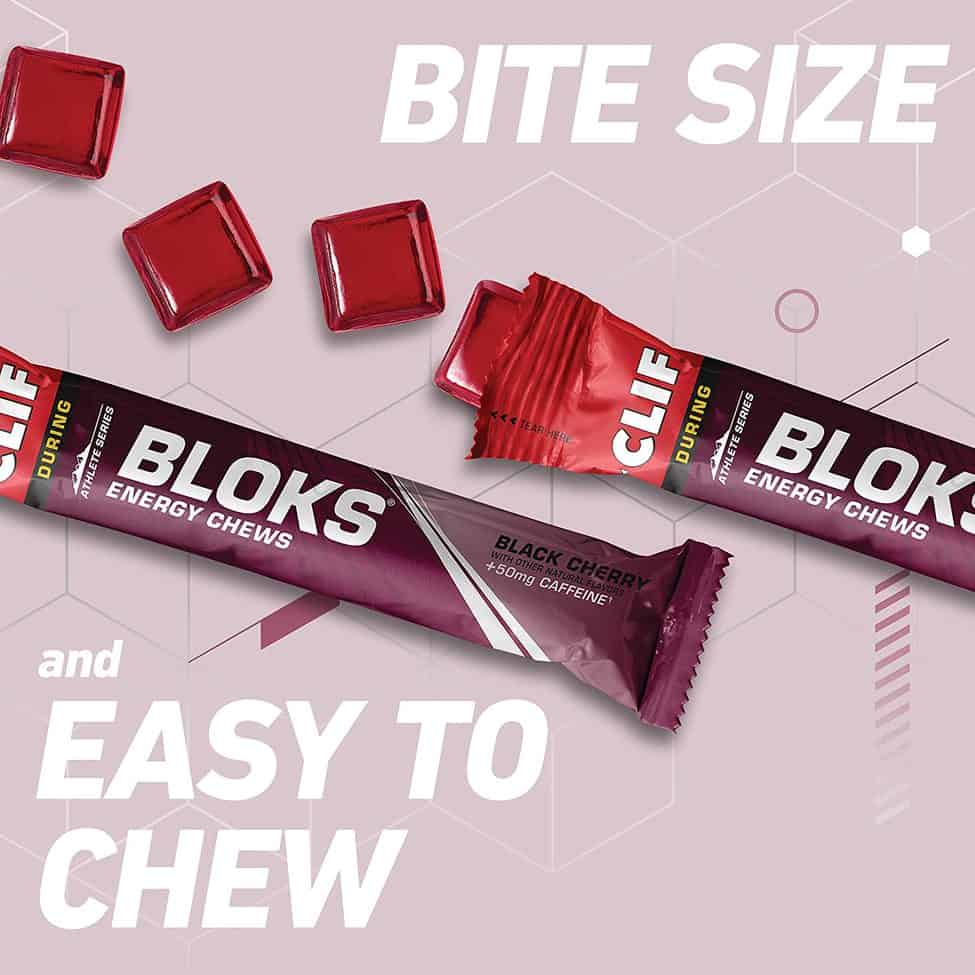
CLIF BLOKS ENERGY CHEWS
CREATED BY ATHLETES FOR ATHLETES
- No stems or pits, just carbs and the flavor of black cherry. Simple to handle, easy to chew, and infused with 50 mg of caffeine.
- CLIF BLOKS Energy Chews provide quick, chewable energy for training and racing.
Buy the right size
If you’ve got big muscles, you’ll need more calories than someone who has smaller ones. This doesn’t mean that you can eat whatever you want, though – you still need to be sensible when choosing what you put into your body.
2. Consume the right amount of calories
The first step towards getting fit is knowing how many calories you should consume every day. It's not rocket science - simply multiply your body weight by 10 to work out roughly how many kilojoules you burn daily. For instance, if you weigh 70kgs, you'd want to aim for 2,500kJ/day. That's enough to cover most people's needs. However, if you're training hard and racing regularly, you might require 3,000kJ/day.
3. Don’t forget carbs
Carbohydrates are one of the most important nutrients for endurance athletes because they provide quick energy and sustain muscle function. They also give us the ability to store glycogen – the body’s main source of stored glucose. Glycogen stores are used by muscles to produce ATP, the chemical currency of cellular activity.
If you don't consume sufficient amounts of carbohydrates, you won't build up any glycogen stores.
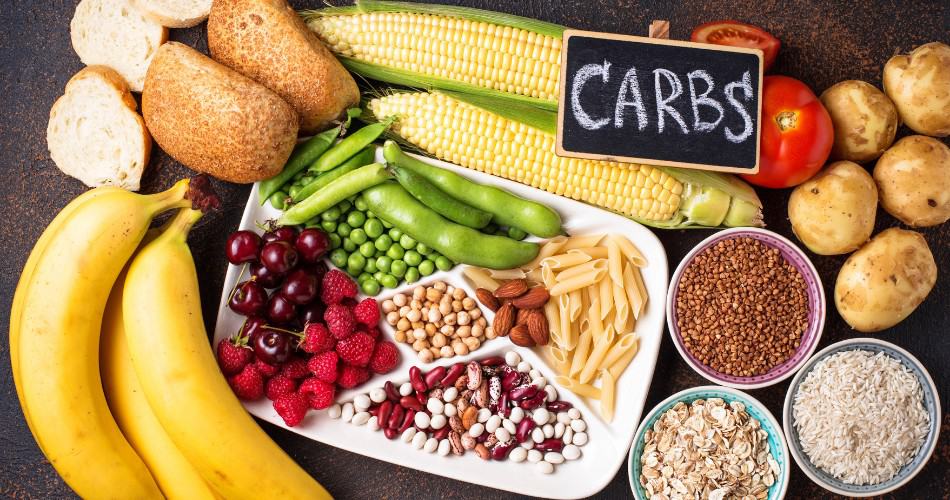
Image Source: Fitnescity
4. Intake enough protein
Protein helps build muscle mass and repair damaged tissue. A study published in The Journal of Sports Medicine & Physical Fitness found that cyclists who ate 1g per kg of their body weight each day had better endurance performance than those who didn’t.
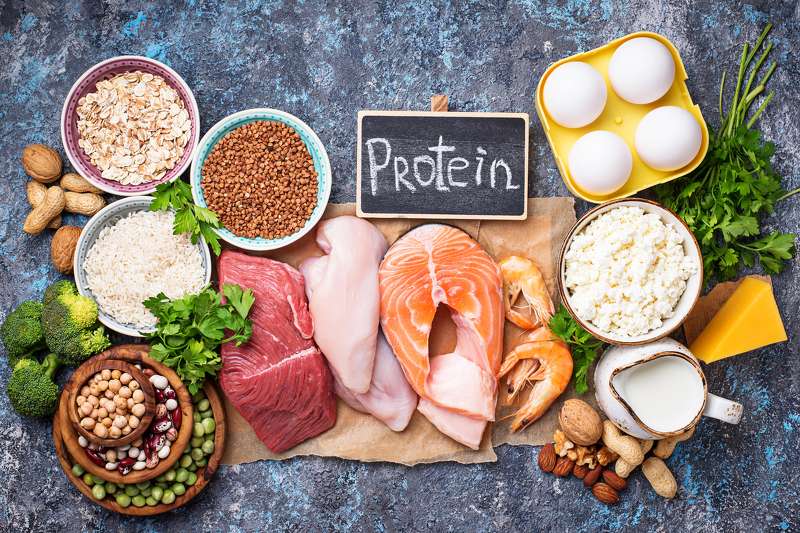
Image Source: miosuperhealth
5. Get Good fats, not bad fats
When it's a healthy kind of fat, it's good for you. The type of fat you choose is important for your health, performance, and weight management. Fats are classified as "good" or "bad" fats. Polyunsaturated fats (Omega 3 and Omega 6 fats) and monounsaturated fats are good fats (Omega 9 fats).
While saturated fats found in meats and processed foods should be avoided, Omega 3 and 6 fats found in nuts, seeds, fish, and oils like flaxseed, Borage, and star-flower oil are essential for good health.
Because good fats are known to lower bad cholesterol (LDL), they are an important part of the diet for heart disease prevention. Aiming for roughly 20g of healthy fat per day is a fantastic way to boost your health without adding too many calories to your diet.
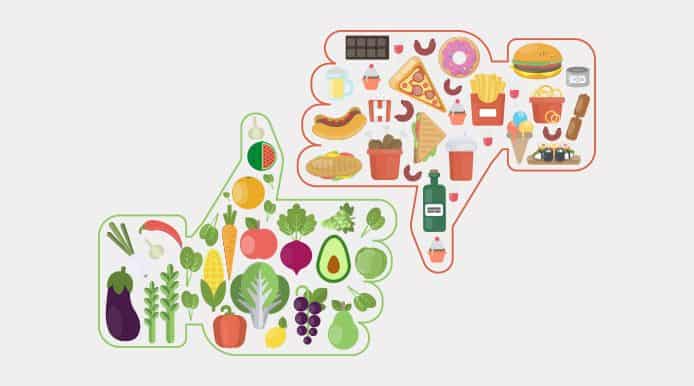
Image Source: Vitajoy Biotech
6. Eat the right vitamins and minerals
Vitamins and minerals help our bodies perform at optimal levels, so we shouldn’t ignore them completely. But some supplements aren’t necessary unless you have specific deficiencies or medical conditions.
Vitamins are of two types:
Vitamins A, D, E, and K are fat-soluble vitamins that are stored in the body. On the other hand, the water-soluble ones are not stored in the body and must be consumed daily. Calcium, iron, and zinc are also required regularly, albeit in very modest amounts.
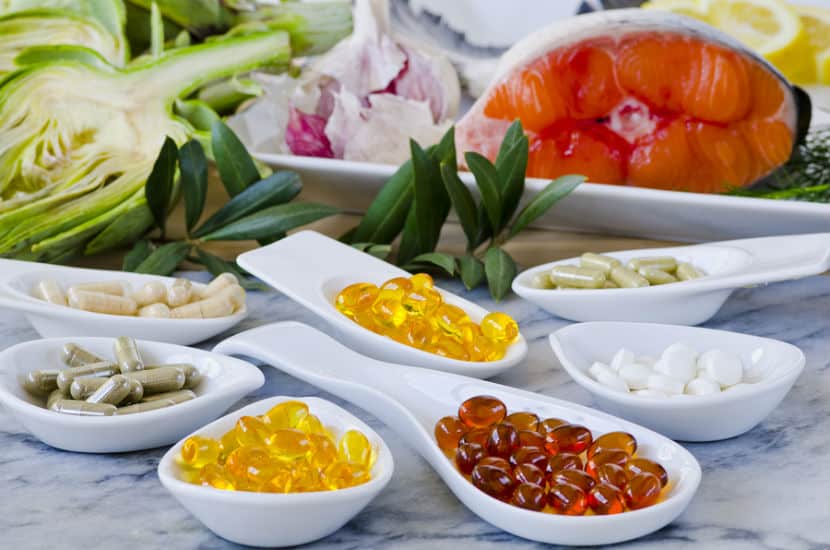
Image Source: Unlock Food
7. Don’t forget about water!
Drinking enough water will not only help you ride better, but it will also improve your energy levels when you're going about your everyday activities. If you've ever felt foggy-headed after a long run, it's usually a sign that you need to drink more. In addition to drinking 1.5-2 liters of water throughout the day, cyclists should drink extra fluid to compensate for any fluid loss while riding.
Weighing oneself before and after a ride is an easy way to figure out how much you need. You need an extra liter of water for every weight you lose, so if a 60-minute bike leaves you 0.5kg lighter, you only need an extra 500ml of fluid in your diet to balance things.
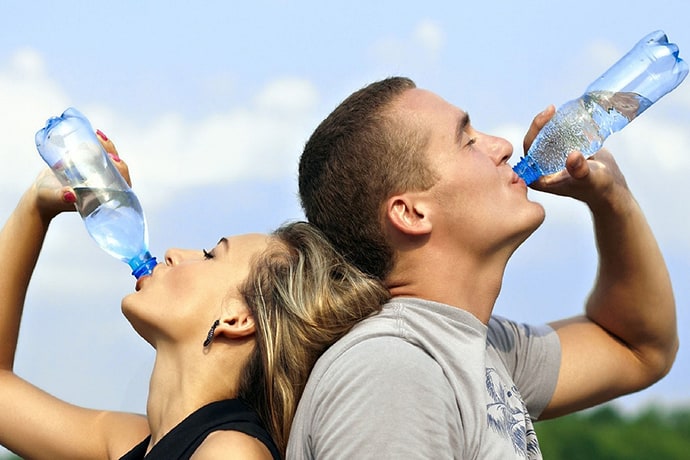
Image Source: USU Extension
8. Avoid caffeine
Caffeine stimulates the central nervous system and increases heart rate and blood pressure. These effects may cause headaches, anxiety, and insomnia. Caffeinated drinks include coffee, tea, cola, chocolate milk, and sports drinks.
9. Be careful with salt
Too much sodium causes fluid retention, high blood pressure, and an increased risk of stroke. Aim to keep your intake below 5 grams per day.
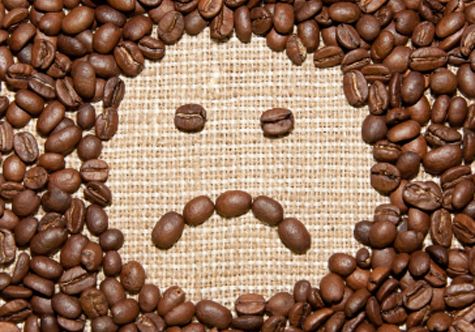

10. Drink Warm before exercise
Drinking something warm before exercising reduces the feeling of coldness caused by sweating during physical exertion. Drinking hot liquids such as soup, broth, or herbal teas also improve digestion and food absorption.
Conclusion
Cycling isn’t just about working out; it’s also about having fun. Don’t let yourself become too serious about nutrition. Enjoy life and take pleasure in all aspects of being active. Try new things and experiment with different diets.
Remember that everyone responds differently to certain foods. For example, some people feel bloated after consuming dairy products, improve while others enjoy cheese.
